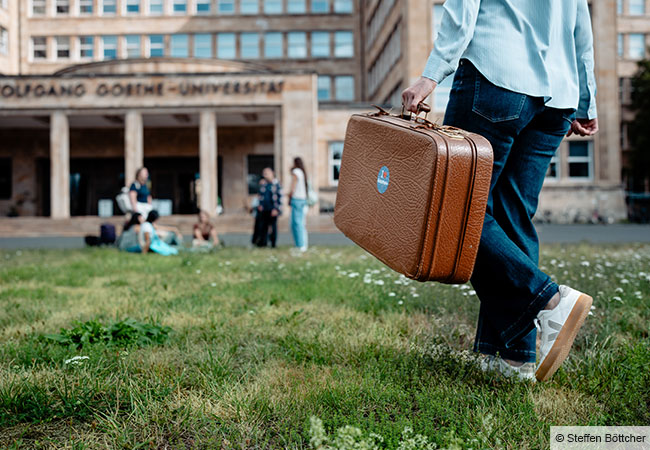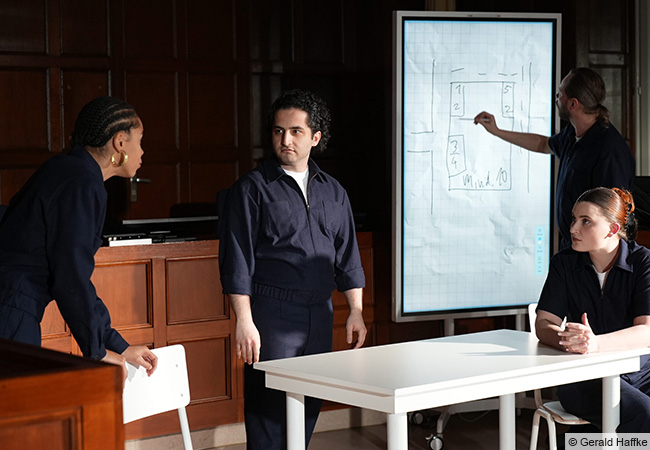Researchers at Goethe University Frankfurt, together with partners from the life science and pharmaceutical industries, are launching a project to develop a new class of drugs against flaviviruses, the cause of infectious diseases like dengue fever. The project is being funded as part of the belBA2122 collaboration between life science company Evotec and pharmaceutical company Bristol Myers Squibb. Taking an innovative approach, the projects sets out to direct RNA-binding small molecules against the flaviviruses transmitted by mosquitoes. The idea for the project came from the team led by Prof. Harald Schwalbe, Professor at Goethe University Frankfurt’s Institute of Organic Chemistry and Chemical Biology and its (NMR) Center.
Wanderlust and climate change mean that viruses transmitted by mosquitoes are increasingly spreading across Europe. The class of flaviviruses, which comprises the dengue, Zika, West Nile and yellow fever viruses, cause serious neurological diseases for which only insufficiently effective vaccines and no specific treatment options currently exist.
Prof. Harald Schwalbe and his team at Goethe University Frankfurt are taking an innovative research approach: They are using a patented nuclear magnetic resonance (NMR)-based screening method to identify small molecules that specifically bind to the viruses’ highly conserved RNA structures and interrupt the viral infection cycle. As part of the beLAB2122 collaboration between Evotec and Bristol Myers Squibb, these new drug candidates will be jointly identified, structurally characterized, and tested for their efficacy. Focused on the Rhine-Main-Neckar region, beLAB2122 aims to bring together academic institutions and industrial partners in an effort to efficiently develop first-in-class therapeutic options for all indication areas and formats into investment-ready drug discovery and early development projects.
Prof. Harald Schwalbe, Director of Goethe University’s Institute of Biochemistry II: „Over the last three years, we have learned a lot about how to fight the SARS-CoV2 virus using small molecules. The new collaboration now allows us, together with industrial professionals, to apply our knowledge to viruses transmitted by mosquitoes, whose habitat is expanding as a result of climate change.“
Dr. Kirstin Schilling, Managing Director of Innovectis, Goethe University’s technology transfer company: „As part of the beLAB2122 program, promising therapeutic approaches can be developed and validated together with pharmaceutical partners from an early development stage onwards, so that research results can be efficiently translated, including through the establishment of joint spin-offs.“
Dr. Thomas Hanke, Executive Vice President and Head of Academic Partnerships at Evotec: „We are looking forward to this project with Goethe University Frankfurt as part of the beLAB2122 collaboration. The project addresses an innovative development approach and holds the potential for the treatment of previously untreatable infectious diseases.“
Background: Goethe University Frankfurt is part of the life science cooperation „beLAB2122“, which brings together academic research and pharmaceutical companies (news from April 13, 2021 – in German)







